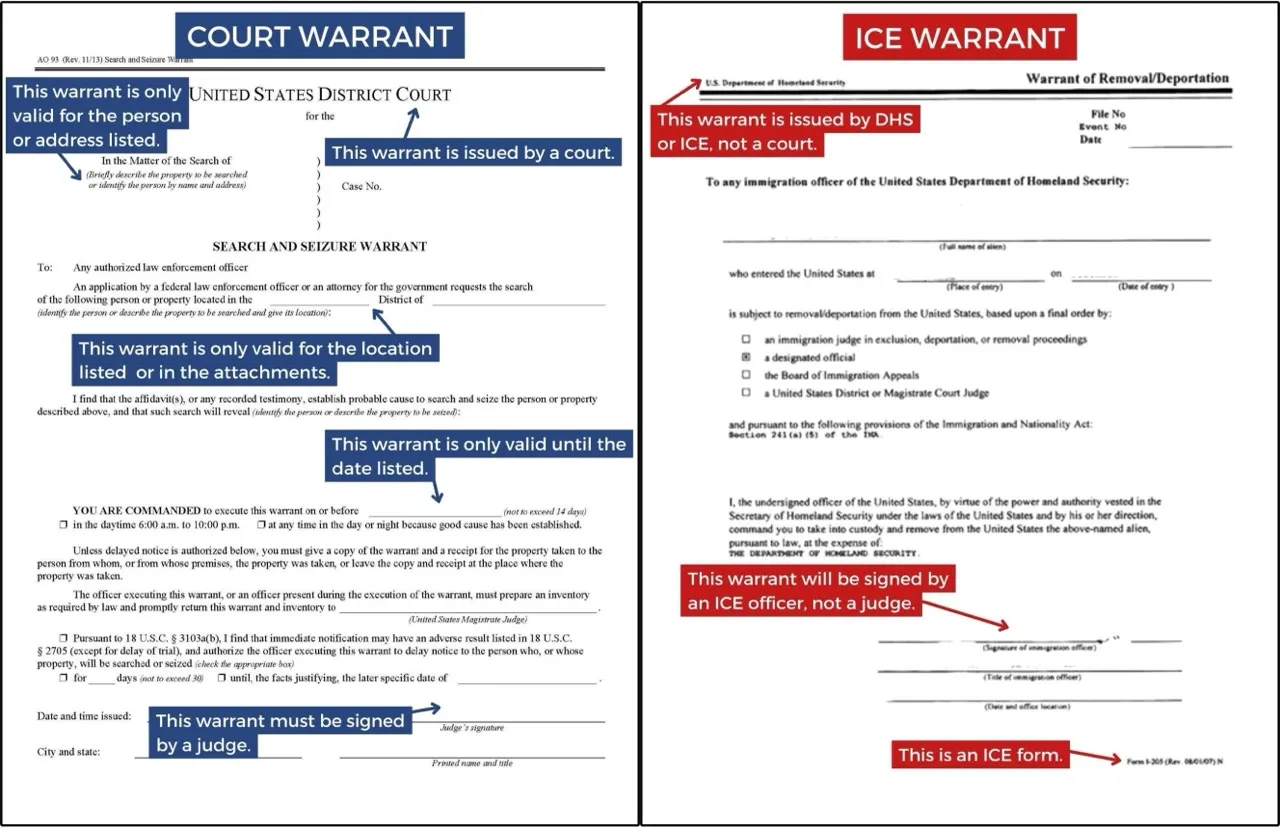Written by ASAP’s expert immigration lawyers · Updated
These documents are samples of a court warrant (left) and an ICE warrant (right).
What are the differences between a court warrant and an ICE warrant?
A court warrant is issued by a court. An ICE warrant is issued by ICE or the U.S. Department of Homeland Security.
A court warrant is signed by a judge. An ICE warrant is signed by an ICE officer.
Will government officials enter a home with only an ICE warrant?
Maybe. For decades, courts have agreed that government officials are supposed to have your permission OR a court warrant – a document signed by a judge – before they can enter your home. However, according to a new ICE memo, ICE now believes that they can enter a home with only an ICE warrant to arrest someone with a final deportation order in their own home. The memo still requires ICE officers to receive either permission to enter or a court warrant to arrest someone in another person’s home.
This new ICE memo is currently being challenged in court, and we will update this page as we learn more. Read about the lawsuit.
If a government official is at your door, you can ask to see a warrant before you open the door. For example, you can ask the official to slide the warrant under the door, or to show it to you through a window or door viewer. If they have a court warrant, you can check that it lists your accurate name and address, is not expired, and is signed by a judge.
If government officials do NOT have a court warrant, they may say they can enter your home without your permission with only an ICE warrant. According to the ICE memo, ICE may use force to enter your home if you refuse entry. You can decide what is best for your safety and whether to open the door or not.
You can also call your lawyer if you have one, and find legal help here. If you or a loved one is detained, you can read this resource. You can also read other safety measures.
The Asylum Seeker Advocacy Project (ASAP) aims to provide factual information about current immigration laws. This information is not legal advice.
All legal content is written and legally reviewed by ASAP’s team of expert immigration lawyers. ASAP’s expert lawyers have decades of experience in immigration law and litigation. Collectively, they have won hundreds of cases. Our lawyers are admitted to the Bar in several U.S. states, hold law degrees from universities including Harvard, Yale, and UCLA, and have won multiple awards for their legal work.
